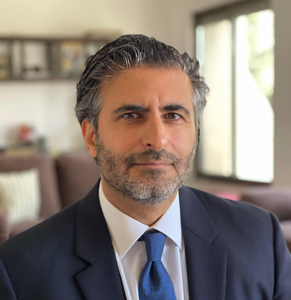Israel's assassination of Hizbollah’s Secretary-General Hassan Nasrallah, along with senior leaders, marks a significant escalation in its confrontation with Hizbollah and the broader "Axis of Resistance". It also signals a rapid move towards direct confrontation with Iran.
This strike, which coincided with Netanyahu's speech at the United Nations, highlights a new chapter in ongoing regional conflicts. Israel’s actions following the attack have been aggressive, including targeting the southern suburbs of Beirut and declaring that Iranian or Iraqi planes would no longer be allowed to land at Beirut Airport. These moves suggest that Israel is systematically clearing Hizbollah’s geographic strongholds, starting with southern Beirut and villages in southern Lebanon. The strategy aims to deprive Hizbollah of its logistical bases and popular support, isolating and weakening the party, while disrupting its internal affairs.
Israel is now focusing on isolating Hizbollah by tightening security control over Lebanon’s land, sea, and air borders. Continuous strikes on the Lebanon-Syria border reflect this approach, with additional security measures being imposed on Beirut Airport, regulating the identity of those passing through it. By controlling strategic sites, Israel seeks to facilitate intelligence operations and launch pre-emptive strikes against other Iranian-backed groups that might support Hizbollah or open new fronts against Israel, especially in the Golan Heights.
For years, Israel has pursued a methodical campaign to weaken Hizbollah without direct confrontation. Since the “pager attack”, Israel has intensified efforts to strategically dismantle Hizbollah’s military capabilities and disrupt its organisational and political structures. The swift pace of these operations shows Israel's desire to maintain the element of surprise, preventing Hizbollah from mounting significant retaliations that could threaten Israeli security. This strategy has allowed Israel to maintain momentum and escalate its attacks.
Netanyahu briefly opened a diplomatic window, proposing a three-week ceasefire, but this was merely a tactic before broadening the confrontation. His message at the UN was clear: Israel’s battle is not with Lebanon, but with Hizbollah, which no longer has control over the front it opened. Israel views this as an existential conflict that requires long-term changes to the rules of engagement, reducing the chances for diplomacy and expanding military action.
Israel's current actions go beyond enforcing UN Resolution 1701. Instead, it aims to redraw the borders with Lebanon and diminish Hizbollah’s influence. Stripping Hizbollah of its military power is seen as a way to reduce its political influence. Israel is now focusing on Hizbollah’s internal strongholds, confining the party to a purely Lebanese framework and cutting off its regional ties. This will be especially effective if Israel’s strikes continue and the humanitarian crisis within Hizbollah’s Shiite support base deepens, turning the party into a burden on Lebanon and sparking internal debates about its role and policies.
Targeting Hizbollah in this way also prepares Israel for what it calls "other potential threats" from Syria, Iraq and Yemen, particularly if these fronts begin attacking Israel. There are already reports of fighters from Iraqi and Yemeni groups near Israel’s borders, not just in southern Lebanon, but also in the Golan Heights and as far as Tiberias. This adds a clear regional dimension to the conflict, making it inevitable that Israel will face other Iranian-backed militias. Netanyahu has even hinted at direct strikes on Iran, stating that Israel is ready to target key sites within the country.
The region has undoubtedly entered a critical turning point, affecting the entire political landscape of the Middle East. Israeli actions are likely to trigger ripple effects across the region. Jordan, situated at the heart of these conflicts, could face significant security challenges as various parties look to expand the conflict. This situation requires Jordan to focus on bolstering its internal security, political, economic and social resilience to withstand the fallout.
